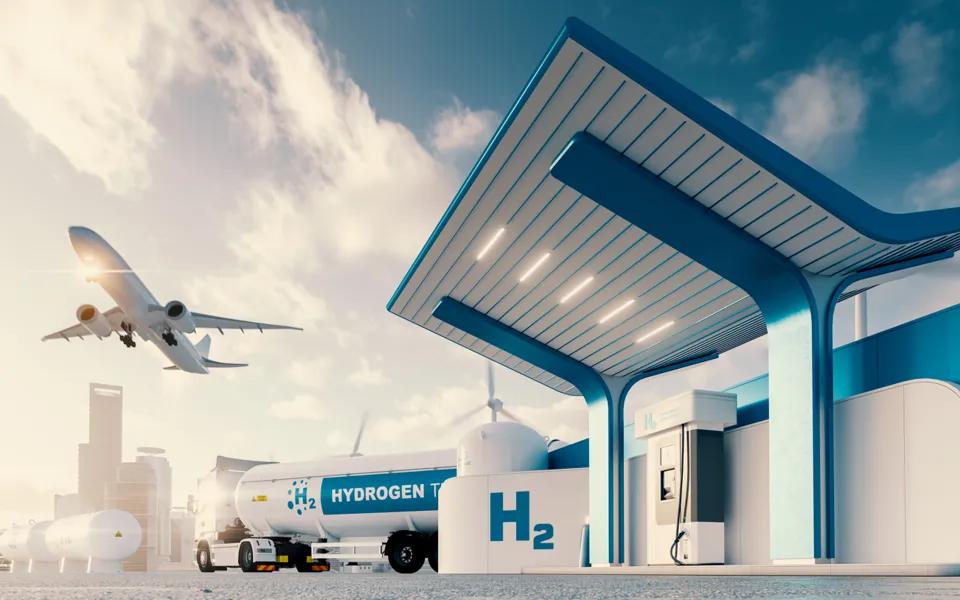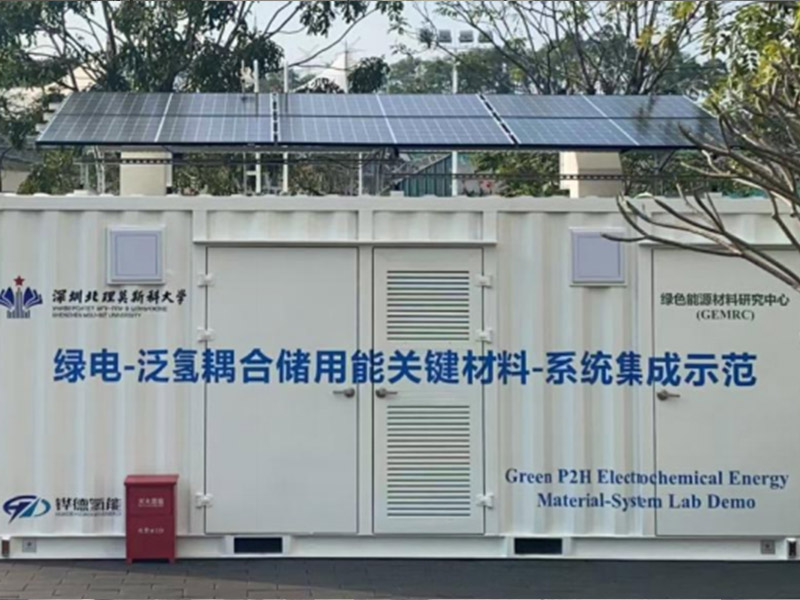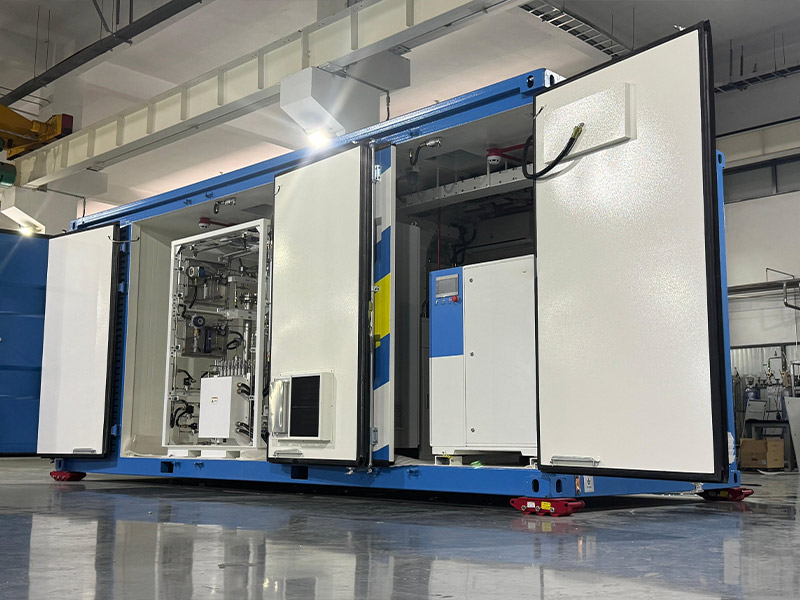Hydrogen fuel is becoming an increasingly important part of the clean energy conversation. From powering vehicles to supplying electricity and heat for homes, hydrogen plays a vital role in a carbon-free future. But one question often arises: How long does hydrogen fuel last? The answer depends on several factors, including storage methods, usage, and whether it’s generated from solar energy.

Keypoints
l Hydrogen fuel doesn’t degrade over time, offering indefinite storage when kept in proper tanks or metal hydrides.
l Compressed hydrogen gas is the most practical for homes and vehicles, balancing longevity with ease of use.
l A 5 kg hydrogen tank can power a home for days or a car for 300–400 miles, matching gasoline convenience with zero emissions.
l Solar-powered hydrogen enables seasonal energy storage, bridging the gap between sunny summers and dark winters.
l Hydrogen outperforms batteries for long-term storage, with no capacity loss over weeks or months.
l Advanced storage methods (like metal hydrides) minimize leakage, making hydrogen safe and reliable for residential use.
l Hydrogen is a cornerstone of energy independence, providing off-grid homes and grids with clean, long-lasting power.
Hydrogen fuel doesn't degrade over time like some traditional fuels. If stored properly, it can last indefinitely. This is because hydrogen is a stable molecule under the right storage conditions, unlike batteries that slowly lose charge or fossil fuels that degrade chemically.
Key Factors Influencing Hydrogen Longevity:
Storage method
Compressed gas, liquid hydrogen, and metal hydride storage all have different properties.
Containment quality
High-pressure tanks or advanced solid-state systems can maintain hydrogen without significant leakage.
Usage rate
How long the fuel lasts in operation depends on how much energy is consumed.
Hydrogen can be stored in various ways, each with its own impact on duration and efficiency.
Hydrogen gas is stored at high pressures (typically 350–700 bar) in specialized tanks.
Longevity: Can last for years if tanks remain sealed and intact.
Use case: Common in fuel cell vehicles and residential power systems.
Limitation: Minor leakage over time is possible, though modern materials minimize this.
Hydrogen is cooled to -253°C to become a liquid, allowing for denser storage.
Longevity: In well-insulated tanks, liquid hydrogen can last for extended periods. However, boil-off (evaporation) is a challenge.
Use case: Space missions and industrial applications.
Limitation: Not practical for most homes due to cooling requirements.
Hydrogen is chemically bound to metals, then released through heating.
Longevity: Very stable, minimal loss over time.
Use case: Safe and compact storage for home or small-scale applications.
Advantage: Excellent for long-term stationary energy storage.
If you're using hydrogen to power your home or vehicle, how long the fuel lasts depends on energy demand and system efficiency.
Solar-powered hydrogen generators create and store hydrogen during the day, which can then be used at night or during outages.
Daily Usage: A typical 5-kilogram tank of hydrogen can power a highly efficient fuel cell system for 2–3 days in an average home.
Backup Power: In standby mode, hydrogen can provide emergency electricity for several days or even weeks.
Heating Applications: Hydrogen can also be used to heat water and air, providing off-grid independence when paired with solar panels.
A 5-kilogram hydrogen tank can power a fuel cell vehicle for 300–400 miles (about 480–640 kilometers), similar to a gasoline-powered car.
One of the biggest advantages of using solar energy to produce hydrogen is its role as long-duration energy storage.
Unlimited Shelf Life: Once hydrogen is produced via electrolysis, it can be stored indefinitely without energy loss, unlike solar batteries.
Seasonal Storage: Excess solar energy in summer can be stored as hydrogen and used in winter—helping homes stay powered year-round.
Clean and Efficient: When combined with fuel cells, solar hydrogen provides electricity with only water vapor as a byproduct.
As countries shift toward more sustainable energy systems, hydrogen fuel—especially when generated from solar energy—is emerging as a solution for long-term, decentralized power. Solar-powered electrolysis systems allow homeowners and businesses to produce and store hydrogen locally, eliminating the need to depend on fossil fuel imports or unstable electrical grids.
Hydrogen can be used not only as backup power but also as a primary energy source in off-grid homes. By combining solar panels with hydrogen generators and fuel cells, users can enjoy continuous, stable energy—even during periods of low sunlight. This level of energy independence is particularly useful in remote areas or in regions affected by natural disasters or frequent outages.
Moreover, hydrogen's long-term storage potential allows it to act as a seasonal energy buffer, helping smooth out the fluctuations in solar availability between summer and winter. This helps balance the grid and supports the broader integration of renewable energy sources across the power sector.
Hydrogen fuel can last for years—if not indefinitely—when properly stored. Whether compressed, liquefied, or stored in solid form, hydrogen offers an excellent option for clean, long-term energy storage. And when it's produced using solar power, it becomes one of the most sustainable and future-proof solutions for homes, transportation, and the grid.
By leveraging solar hydrogen technology, you’re not just storing power—you’re securing your energy future.
Hydrogen can last indefinitely if stored properly in high-quality tanks, unlike batteries that degrade over time.
Compressed gas tanks (for homes/vehicles) and metal hydrides (for stable, compact storage) offer the best balance of longevity and practicality.
A typical 5 kg hydrogen tank can run a fuel cell system for 2–3 days in an average home, or weeks in backup mode.
No—it requires extreme cooling (-253°C) and is better suited for industrial or space applications due to boil-off losses.
Yes! Excess summer solar energy can be stored as hydrogen and used in winter, solving renewable energy’s seasonal gaps.
Hydrogen doesn’t lose charge over time, making it ideal for weeks/months of storage, while batteries are better for short-term daily use.
Yes—modern tanks and solid-state storage systems are leak-proof and meet strict safety standards, similar to propane.


